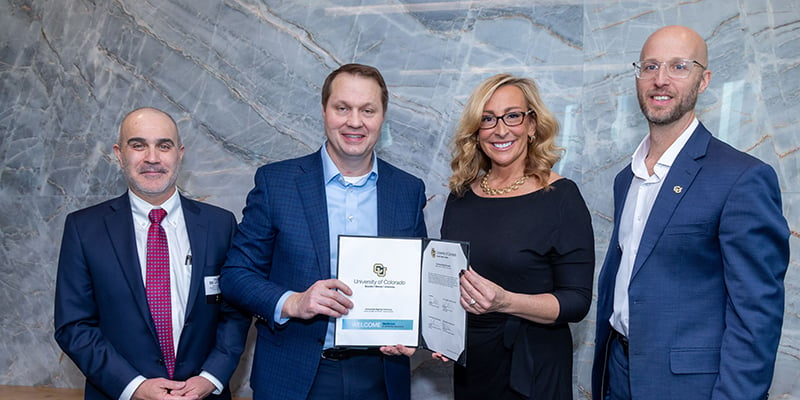At its given pace, colorectal cancer will seize the No. 1 spot as the top killer of Americans aged 20 to 49 within seven years. Cases of the deadly cancer – its warning signs not often comfortably shared with friends or even doctors – have increased between 1% and 2% each year in that age group since 1990.
What accounts for the rise remains unclear, although a colorectal cancer program focused on young patients at the University of Colorado Anschutz Medical Campus is aimed at finding out. One of only a few in the country and headed by Christopher Lieu, MD, associate director of clinical research at the CU Cancer Center, the program conducts focused research and offers specialized care to patients like Jimmy Zanon.
By the Numbers(U.S., all ages) 45 Age screenings are recommended for people at average risk. 153,020 Estimated new cases in 2023. 52,550 Estimated number of deaths in 2023. 2,100 Estimated number of new Colorado cases per year. |
“My care experience was nothing short of amazing," said Zanon, a husband and father diagnosed at age 37 with advanced colorectal cancer. "And I was confident that the team was using cutting-edge treatments and research to get the best results,” said Zanon, whose search for the best possible care led him to the CU Cancer Center and Lieu, an associate professor of oncology at the CU School of Medicine.
Multiple potential contributing factors, from biological to environmental, make solving the puzzle to the increase in early-onset cases difficult. Consequently, campus experts are leading an effort to gather physicians from across the country to put their minds and data together in finding answers.
Caught early, colorectal cancer is highly treatable. Chief warning signs include rectal bleeding, diarrhea, abdominal pain and iron-deficiency anemia.
Read more about the work on campus to address this issue and the care Zanon and others like him receive in the chancellor’s newsletter, At the Forefront.
Photo at top: Jimmy Zanon with wife, Kim, and their two children.




